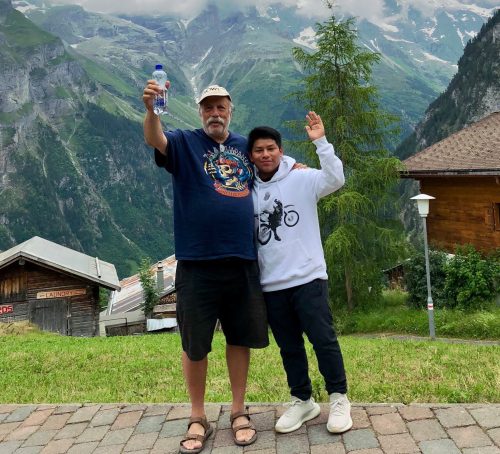It has been seven years since I returned to Resource Media and I have one month left on the job. As I announced earlier this summer, I am
transitioning out of my role as Executive Director in part to open up space for more diverse leadership at Resource Media and in part to create my own practice that will allow me to focus more on doing hands-on consulting work.
It is a move I knew intellectually I would need to ultimately make when we launched our DEI initiative shortly after I came back on board. It is a move that feels as viscerally right as so many of the other changes our organizational evolution has yielded. I have learned that stepping back (not stepping out) is a critical piece of creating opportunities for women, people of color and other marginalized communities. Leadership comes in many forms and is not well served by clinging to power and privilege for their own sake.
I feel grateful for the grace, the patience and the willingness to tolerate mistakes I have received from my colleagues, so powerful that it has prompted me to reflect on the lessons this aging white man has learned while trying to lead an organization through a transformation that has also fundamentally changed my own world view.
I thought I might share a few of them here for the benefit of other leaders of white-dominated organizations starting their equity journey.
The rationale for organizations to pursue the arduous task of undoing racism needs to be rooted in strategy; a strategy related to mission and values. However, the first work is personal. If this pivot sounds like a dichotomy, it is. It can be a real obstacle to white leaders who are oriented toward “fixing” rather than “reflecting”. It will also trigger feelings of defensiveness and fragility. Yet I can’t over-emphasize how important the personal work is. It is like learning a new language. You need to start at the most fundamental level and that level is deep inside each of us.
White leaders, to be effective you need to be both relentless and vulnerable. Relentless because there will be dozens of opportunities to throw in the towel. If people think that’s an option the towel will be tossed. Vulnerable because this is what the personal work requires and that needs to be modeled “from the top”. Showing vulnerability is not how many white men are socialized. But if leadership can’t model talking about personal fears, foibles and biases it will be next to impossible for staff to do the same. For me, this most often meant admitting mistakes, both sins of commission and omission. I discovered that as a white male, I was so self-assured about understanding the “rules” I often exhibited a stunning blindness to transgressions when those rules changed. I’ve had to admit things like circumventing processes our equity committee had just established, neglecting to gather adequate input on decisions that were supposed to be transparent and misuse of language and tone in a way that is hurtful to others. In most cases, my initial internal reaction was; well I didn’t mean to cause harm. But understanding that intent never trumps impact is one of the keys to morphing from a defensive leader stuck in the status quo to a vulnerable one that can truly help inspire change .
Don’t lead with structure and rules. These are important. In fact, I think that Resource Media could have gotten to this phase more quickly than it did. But delving into policies and plans requires the ability to talk about difficult topics with one another–topics upon which consensus may be impossible. Words that seem to roll off my tongue yet offend others, assumptions about hiring practices and job descriptions that are benign to a white man but exclusionary to others and the very act of surveying staff to get a measurable benchmark of our organization’s progress. These are all tough conversations that have come up during my tenure. It is a skill set that needs to be developed, exercised and nurtured.
Finally, white leaders must come to see that their lives will be enriched in a post white supremacist world. It is not about losing power. It is about regaining your soul and seeing the world as it is. The past seven years have transformed my worldview and that world is a much richer and more rewarding place. It is both personal and professional. I can begin to see how the experience of my wife and son, both people of color, has fundamentally differed from my own. I have a greater respect and sensibility that equity does not mean sameness. I can more easily discern the wisdom, strength and beauty of cultures and communities who have coped with oppression as a way of life. I now truly believe that diversity yields creativity, the true spark of change.
I leave my position at Resource Media feeling as if I have gained so much and lost very little. I will be forever grateful for that.
